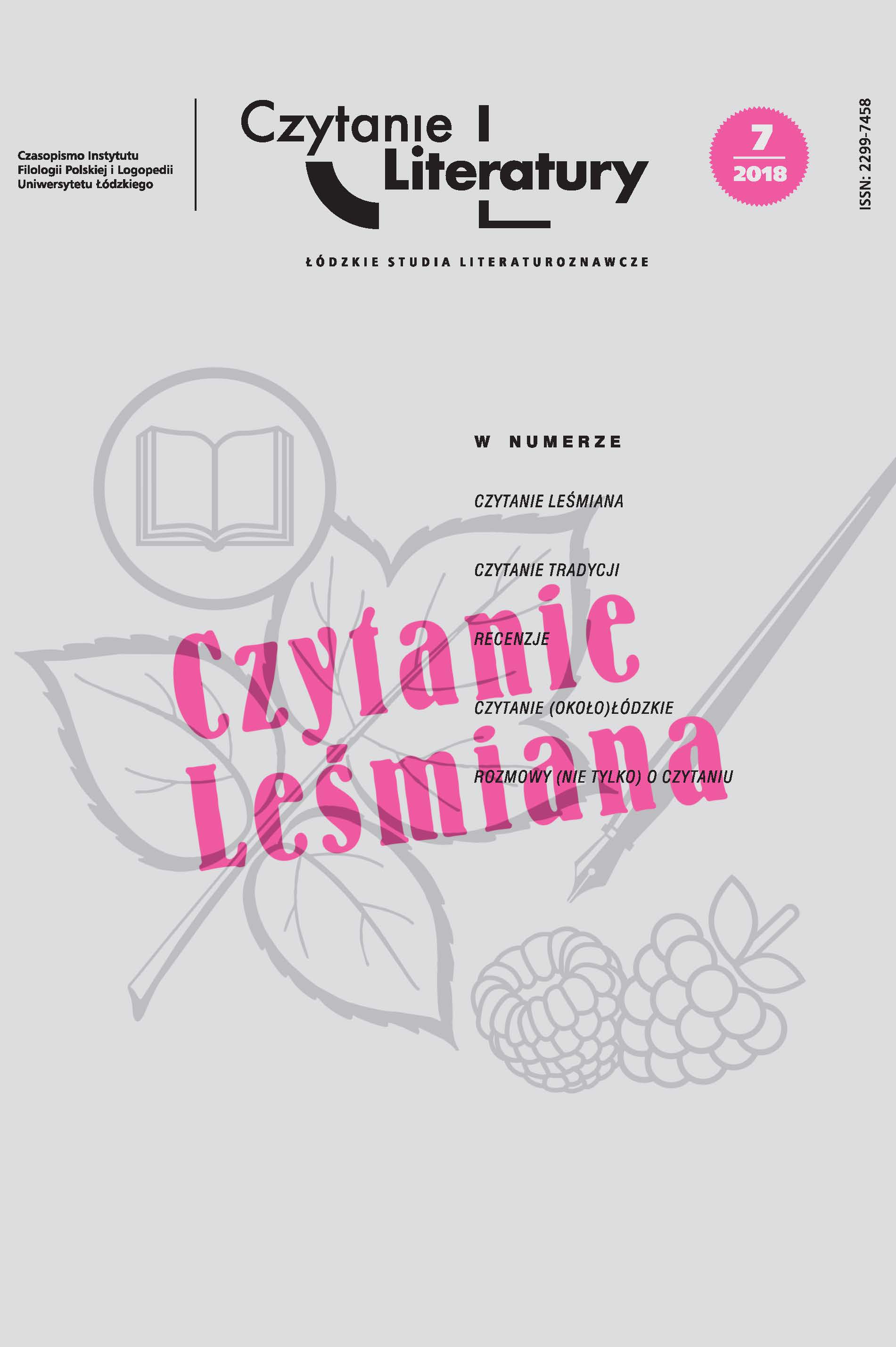Czy istnieje przepis na obcojęzycznego Leśmiana?
Is there a recipe for Leśmian in other languages?
Author(s): Marta KaźmierczakSubject(s): Polish Literature, Theory of Literature
Published by: Wydawnictwo Uniwersytetu Łódzkiego
Keywords: Bolesław Leśmian;translatability;poetics of translation;author’s style;neologisms;verse form;myth-making
Summary/Abstract: The obvious difficulties notwithstanding, Bolesław Leśmian’s poetry has been translated into over a dozen languages of a varied degree of affinity with Polish. The diverse strategies adopted, the differences in quality and quantity of renditions in particular countries as well as the still marginal position of the poet in the European canon all encourage translation-oriented methodological reflection on his oeuvre.The aim of the paper is to give an overview of the main difficulties encountered by the translators of Leśmian’s verse and, on basis of translation practice in various languages, to extract certain recipes, i.e. solutions and approaches which, if applied on a wider scale, promise an optimised result of a translation effort. With reference to the concept of translation dominant(s), four elements have been indicated as necessary for achieving adequacy when rendering Leśmian. The issues discussed encompass the re-creation of neologisms – with an emphasis on the systematic character of the poet’s word formation – the verse form, including the role of rhythm and the entailed question of whether the renditions should retain the same metre, the mythopoeic dimension of Leśmian’s poetry, as well as its unique character. Worth mentioning are also the problems resulting from the fact that the oeuvre of the poet in a foreign language is co-created by a number of translators in each case and from the differing circumstances of reception in particular cultures. Examples are drawn from translations into English, German, Russian, Ukrainian and Italian.
Journal: Czytanie Literatury. Łódzkie Studia Literaturoznawcze
- Issue Year: 2018
- Issue No: 7
- Page Range: 245-284
- Page Count: 40
- Language: Polish

